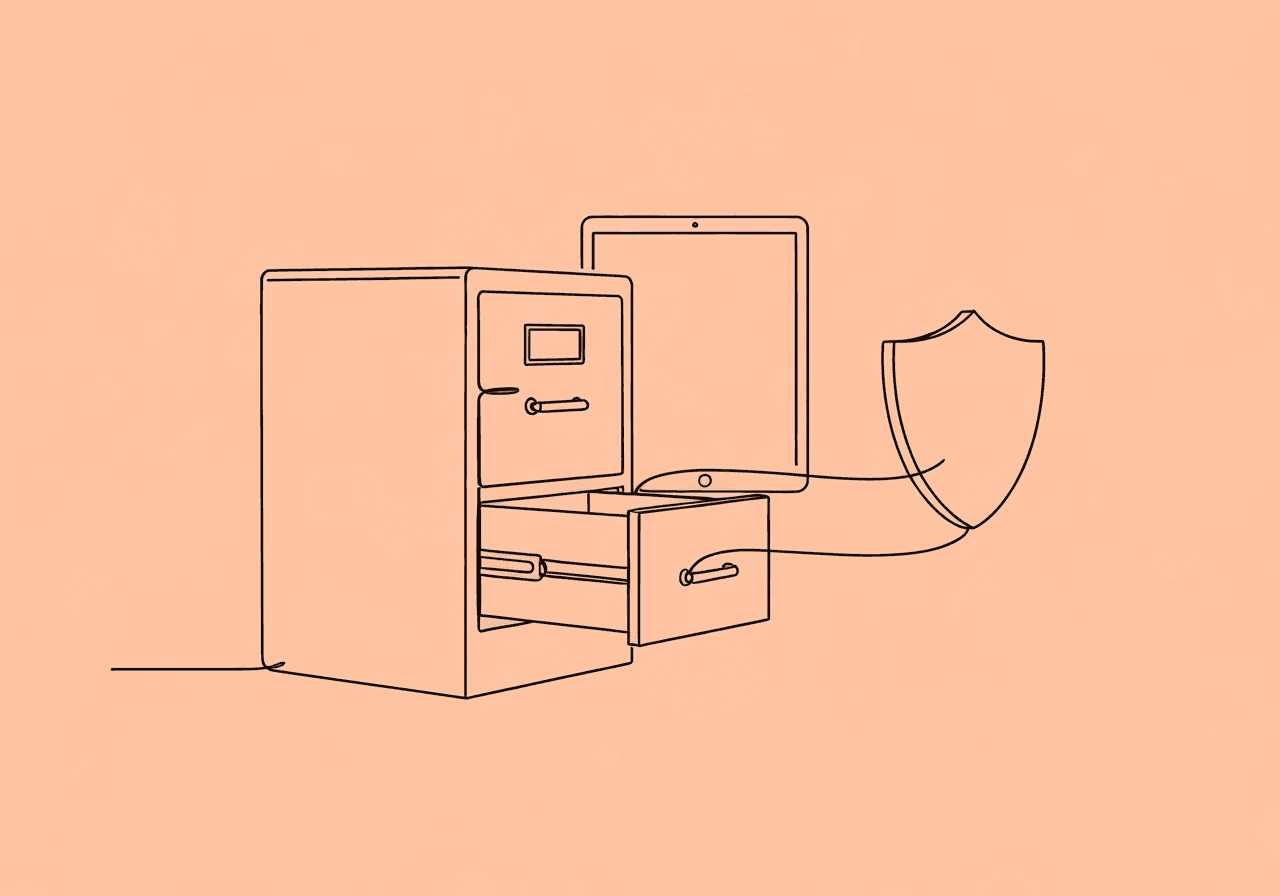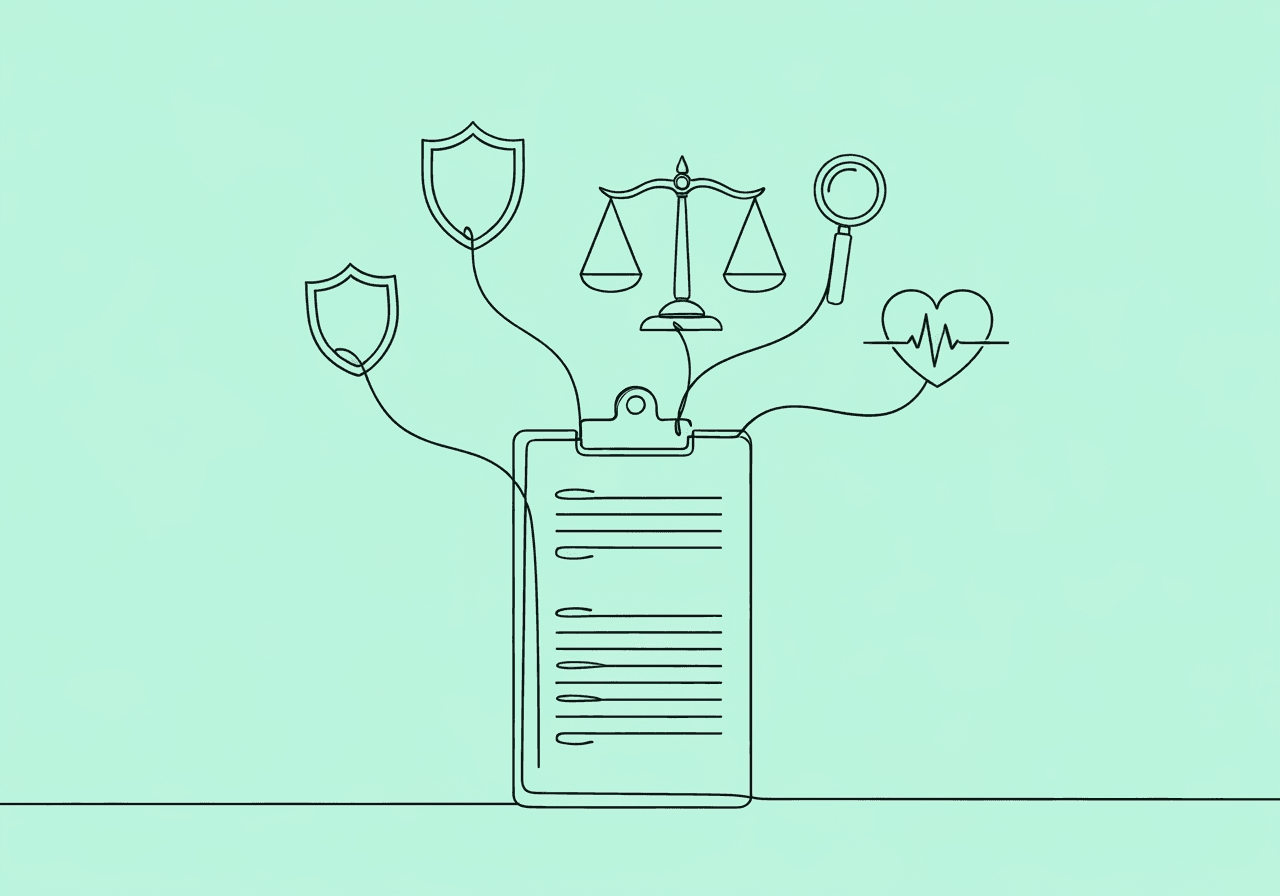BCBA Record Retention Guide: BACB Compliance Essentials

Applied behavior analysis (ABA) is a fast-moving field where client progress depends on solid documentation. Overlooking record management can lead to ethical pitfalls and legal headaches. For Board Certified Behavior Analysts (BCBAs), BCBA record retention is not just a checkbox—it is a cornerstone of professional integrity and client trust. BCBAs must maintain records as required by applicable laws and regulations, such as HIPAA and state-specific rules, which often specify at least seven years, while navigating those requirements to safeguard sensitive data.
This guide equips you with practical, evidence-based strategies to stay compliant. Here are the key takeaways:
- The Seven-Year Rule is a Minimum: The BACB requires retaining records for at least seven years, but state and federal laws often demand longer periods.
- State Laws Take Precedence: You must comply with the strictest applicable law, whether it's from the BACB, your state board, or a federal regulation like HIPAA.
- Digital Security is Non-Negotiable: Electronic records must be protected with encryption, access controls, and secure backups to comply with HIPAA.
- Disposal Requires Diligence: When the retention period ends, records must be destroyed irreversibly, with the process fully documented.
By the end, you'll have actionable steps to fortify your practice against audits and breaches.
What are a BCBA's Responsibilities in Record Management?
BCBAs bear significant responsibility for client records, as outlined in the BACB Ethics Code 2.0. This code emphasizes creating, maintaining, and disseminating documentation that supports ethical practice and client welfare. Specifically, sections 2.07 (Maintaining Confidentiality) and 2.11 (Records and Data) require behavior analysts to handle records—whether physical or electronic—in ways that preserve privacy and comply with legal standards.
Records include session notes, progress data, assessment results, and consent forms. All of which must be accurate, timely, and legible. The code mandates that BCBAs stay informed about relevant laws and organizational policies for storage and destruction. If working under a larger agency, you must align with their protocols. As a self-employed BCBA, you dictate your own system, provided it meets or exceeds legal minimums.
Failure to uphold these duties can erode client trust and expose you to ethical reviews. To integrate compliance seamlessly, consider tools like HIPAA-compliant electronic health record (EHR) systems. These platforms streamline documentation while embedding necessary compliance checks.
The Minimum 7-Year Retention Rule and State Variations
The BACB sets a clear baseline: retain records and data for at least seven years from the date of service termination, or longer if required by law. This rule, detailed in Ethics Code 2.11(b), ensures continuity of care, supports billing audits, and protects against litigation. This ABA documentation retention period typically starts after discharge for adult clients. For minors, it's often extended, such as until the client turns 18 plus several additional years, depending on state guidelines.
State laws frequently supersede the BACB minimum, imposing stricter timelines to align with broader healthcare regulations. For example, in New York, records must be kept for at least six years or until the patient reaches age 22, whichever is longer, as per state health department rules. In California, behavioral health providers must retain records for seven years from discharge for adults, but for minors, at least 7 years after the minor turns 18 (potentially up to 25 years), according to state medical record laws. For Louisiana Medicaid ABA therapy, records must be retained for at least 7 years.
BCBAs practicing across states or via telehealth must map these variations carefully. Consult your state licensing board or the BACB's ethics page to identify overrides. If in doubt, always default to the longest applicable period to mitigate risks.
- Research your state's behavioral health statutes via official .gov sites.
- Document retention policies in client contracts for transparency.
- Review your policies annually, as laws can evolve.
How to Secure Digital Records with EHR Systems and Backups
Transitioning to digital records offers efficiency, but only if secured properly under HIPAA. The BACB Ethics Code reinforces this by requiring safeguards against unauthorized access. A key part of BCBA record retention is securing digital files, so you should opt for EHR systems certified for HIPAA compliance with features like end-to-end encryption, role-based access controls, and automatic audit logs.
Key safeguards include:
- Implement encryption at rest and in transit: This ensures data remains unreadable if breached, as mandated by the HIPAA Security Rule (45 CFR § 164.312).
- Enforce unique user authentication: Do not use shared logins; implement multi-factor authentication to track all access.
- Maintain regular backups and a disaster recovery plan: Store copies offsite or in the cloud with geo-redundancy to prevent data loss.
- Conduct annual risk assessments: Evaluate your systems to identify vulnerabilities, per HHS guidelines.
According to the U.S. Department of Health and Human Services, a vast majority of healthcare breaches involve electronic records, underscoring the need for robust EHRs. Providers like CentralReach or Catalyst offer ABA-specific platforms that integrate progress tracking with compliance features. Staff training is also non-negotiable—equip your team with annual HIPAA refreshers to handle PHI securely.
Step-by-Step Process for Compliant Record Disposal
Once the retention period ends, disposal must prevent any reconstruction of confidential information. This aligns with BACB Ethics Code 2.11 and HIPAA's minimum necessary rule. The process differs for paper and electronic formats but prioritizes irreversibility and documentation.
For paper records:
- Verify the retention period has expired, cross-referencing client age, state laws, and contract terms.
- Segregate records in a secure area, logging the disposal date and volume for audit trails.
- Use cross-cut shredding or incineration services certified by NAID (National Association for Information Destruction).
- Dispose of shredding remnants in locked bins, then update your records log to note completion.
For electronic documentation:
- Confirm expiration and export a final audit report of access history.
- Employ secure deletion tools like DBAN for wiping drives or overwriting software.
- For cloud-based data, use provider tools for permanent erasure and request certificates of destruction.
- Document the method, date, and personnel involved in a compliance log.
This structured approach for BACB record disposal not only complies but also demonstrates due diligence during audits. Both methods require Business Associate Agreements with any third-party vendors involved in the process.
What are the Risks of Non-Compliance?
Ignoring BCBA record retention protocols invites severe consequences, from financial hits to career-ending sanctions. The BACB can impose disciplinary actions, including certification suspension or revocation, for violations of Ethics Code 2.11. State boards may follow suit, with penalties escalating based on intent and harm.
Financially, HIPAA violations carry steep penalties, with fines ranging from $137 to $2,134,831 per violation depending on culpability, with annual caps up to $2 million, per the latest HHS enforcement data. Audits from insurers or Medicaid can deny claims retroactively if records are incomplete or prematurely destroyed.
Beyond money, non-compliance erodes trust. Clients may sue for privacy breaches, and reputational damage can deter referrals. Proactive compliance with BCBA record retention isn't optional—it's a safeguard for your livelihood.
Frequently Asked Questions
How long must BCBAs retain client records according to the BACB?
The BACB Ethics Code 2.0 requires retaining records for at least seven years from service termination, or longer if mandated by law. This covers session notes, data, and assessments to support ethical practice and audits, as detailed in section 2.11 (BACB, 2022).
Do state laws override BACB record retention requirements?
Yes, state laws take precedence and often extend the seven-year minimum. For instance, New York mandates six years or until the client turns 22, whichever is longer. BCBAs must check jurisdiction-specific rules to ensure compliance.
What are HIPAA requirements for digital ABA records?
HIPAA demands encryption, access controls, and audit logs for electronic records. Annual risk assessments and staff training are essential to prevent breaches, with non-compliance risking fines that can exceed $2 million annually.
How should paper ABA records be securely disposed of?
After the retention period, shred paper records using cross-cut or NAID-certified services to prevent reconstruction, then log the process. This complies with BACB confidentiality rules and avoids legal exposure.
What happens if a BCBA fails to comply with record retention rules?
Non-compliance can result in BACB sanctions like certification revocation, substantial state and federal fines per HIPAA violation, claim denials, and lawsuits. Audits often reveal these issues, leading to operational disruptions.
Can BCBAs use cloud storage for ABA documentation?
Yes, but only with HIPAA-compliant cloud services that provide encryption and a Business Associate Agreement. Ensure backups are secure and accessible for the full retention period, following NIST guidelines.
Finally, mastering BCBA record retention under the BACB Ethics Code 2.0 empowers you to deliver ethical, high-quality ABA services. From the seven-year baseline to HIPAA-secured EHRs and methodical disposal, these practices protect your clients and your practice. Evidence from the HHS and BACB underscores that proactive measures prevent breaches, which affected over 133 million healthcare records in 2023 alone.
Take these steps next: Audit your current system against state statutes, implement an EHR if needed, and schedule staff training. Document everything for peace of mind. By prioritizing retention, you not only meet standards but also elevate client outcomes.
Popular in Compliance & HIPAA
- 1
RBT Renewal Competency Documentation Guide for BCBAs
3,0496 min read - 2
BCBA Procedural Fidelity Checklist: Essential H-6 Guide
2,4926 min read - 3
ABA Documentation Checklist: RBT Compliance Guide 2025
2,2169 min read - 4
BCBA Service Discontinuation Ethics: BACB Guide
1,7436 min read - 5
BCBA Mandatory Self-Reporting: The 30-Day Rule Guide
1,7198 min read
Popular in Compliance & HIPAA
- 1
RBT Renewal Competency Documentation Guide for BCBAs
3,0496 min read - 2
BCBA Procedural Fidelity Checklist: Essential H-6 Guide
2,4926 min read - 3
ABA Documentation Checklist: RBT Compliance Guide 2025
2,2169 min read - 4
BCBA Service Discontinuation Ethics: BACB Guide
1,7436 min read - 5
BCBA Mandatory Self-Reporting: The 30-Day Rule Guide
1,7198 min read
Related Resources
Explore more helpful content on similar topics

ABA Record Release of Information: Compliance Guide
Master ABA record release of information with our 8-step HIPAA compliance guide for BCBAs. Learn verification, minimal necessary rule, secure PHI release process, and archiving to protect privacy and streamline operations.

BCBA Client Complaint Documentation: Compliance Essentials
Master BCBA client complaint documentation essentials. Discover step-by-step ABA grievance processes, BACB Ethics 2.09 compliance, and retention strategies to safeguard HIPAA adherence and your practice.

BCBA Mandatory Self-Reporting: The 30-Day Rule Guide
Navigate BCBA mandatory self-reporting with our comprehensive guide to the 30-day rule. Discover event categories, step-by-step documentation, and consequences to maintain BACB ethics compliance and avoid penalties.